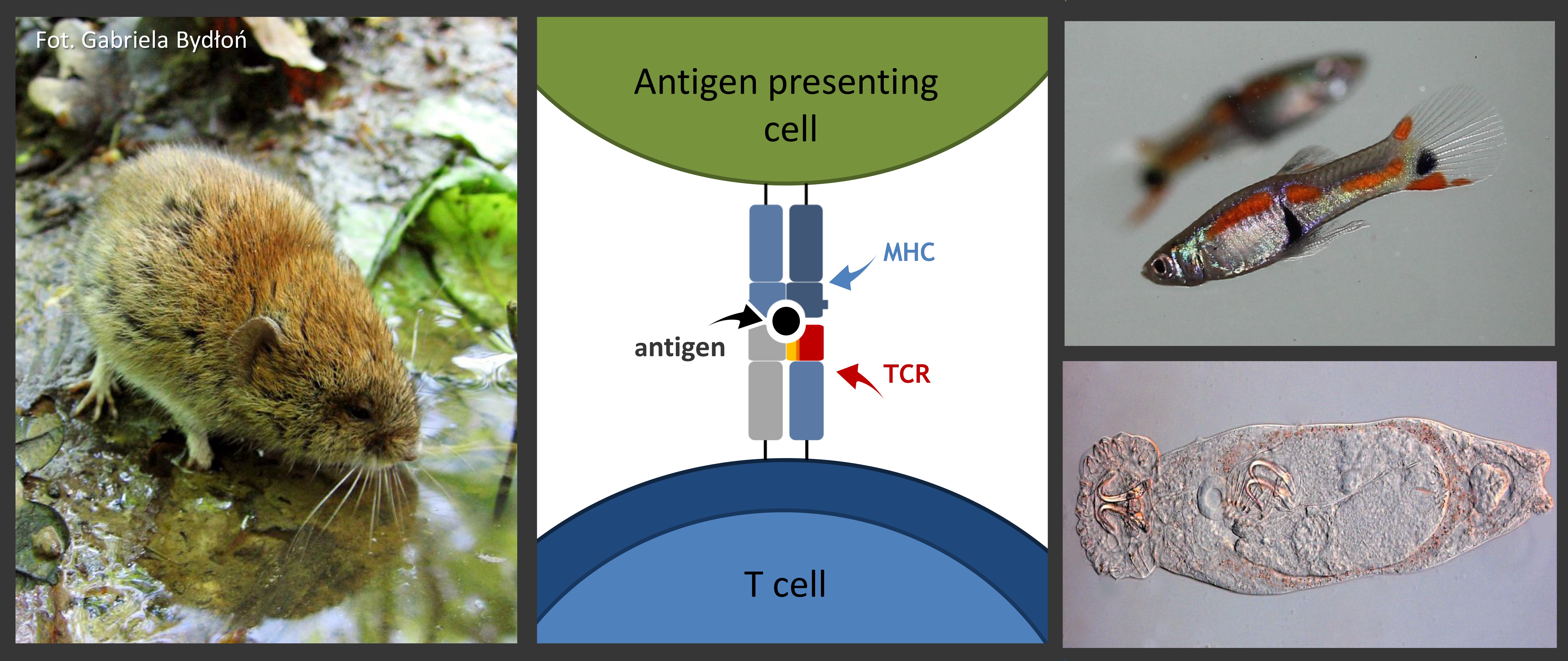Evolution of MHC diversity: benefits of novelty and costs of excess
Prof. Dr hab. Jacek Radwan
Adam Mickiewicz University, Poznań, Poland
Venue: Wednesday, 13.11.2019, 13:00, CeNT Lecture Theatre 0142.
How to get there: Lecture theatre 0142 is c. ~15 meters to the right after entering CeNT
Major histocompatibility complex (MHC) genes encode proteins that initiate adaptive immune response by presenting foreign antigens to T-cells. High polymorphism of these genes is attributed to selection imposed by fast-evolving pathogens, themselves selected to escape recognition by common MHC alleles. In addition to maintaining polymorphism, host-parasite coevolution should also cause positive selection on novel MHC alleles, which are predicted to give hosts superior resistance. Novel allele advantage should in turn promote MHC gene duplication and diversification. Furthermore, expressing many diverse MHC genes should allow recognition of a broad spectrum of pathogens. Yet, the number of MHC loci found in genomes of most vertebrates is limited, which is hypothesized to reflect trade-offs with other components of the immune system. I will report results of two studies testing whether novel MHC alleles indeed improve resistance to parasite in natural populations, and whether expansion of individual MHC diversity is limited by a trade-off with T-cell receptor repertoire.
